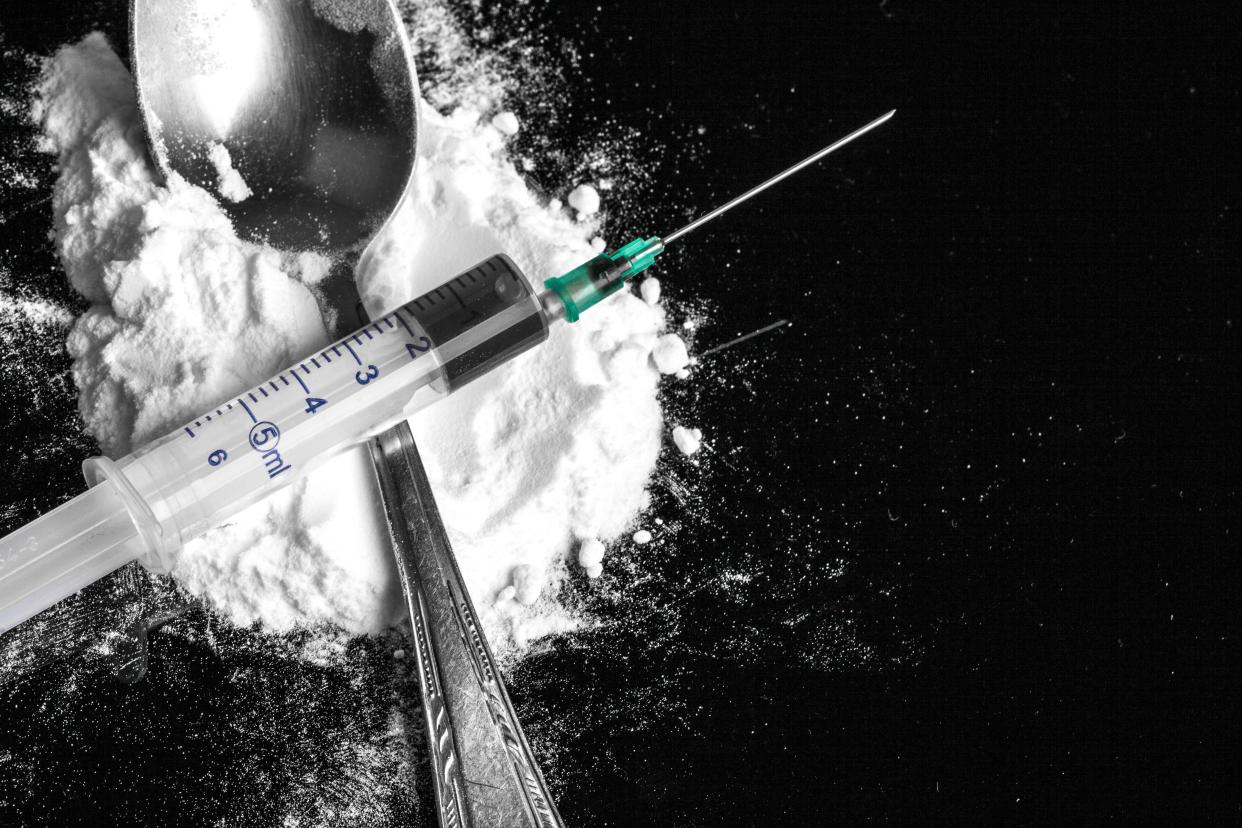City of Monroe among Michigan's top 10 communities in opioid overdose death rates

The City of Monroe was tied with the 10th highest overdose death rate in Michigan in 2020, and Monroe Township was right there with a rate of 11, according to data supplied by the Michigan Department of Health and Human Services.
The City of Monroe had 14 overdose deaths that year, or 7 per 10,000 residents in 2020, the most recent year available. Eight people died of overdose in Monroe Township in 2020, or 6 per 10,000, according to the data. Ecorse had the highest rate in Michigan with 13 deaths per 10,000 and Detroit had 6 deaths deaths per 10,000 people.
More: Michigan breaks grim record: More drug overdose deaths than ever, again
More: Database: These Michigan communities were hit hardest by overdose deaths in 2020
Vicky Loveland, Coordinator of the Monroe County Substance Abuse Coalition, said the pandemic’s effects played a significant role in the number of overdose deaths in 2020. Because most therapy and treatment centers were either shut down like the rest of society, those who are or were addicted to heroin or opioids could not seek the proper services they needed. Thus lives were lost.
“I’m not surprised,” Loveland told the Monroe News. “We’re just mindful that the statistics do not take away from all the work we have done.”
Rebecca Turner of Catholic Charities of Southeast Michigan said unemployment also played a role.
“Many phases had shut down in the opening phases [of the pandemic] so there was a spike in the increase," she said. "It was also due to the increase of people getting unemployment. You had resources closed and you had money coming in through unemployment and stimulus checks.”
Michigan suffered 2,759 of about 93,000 opioid overdose deaths in America in 2020, according to the Centers for Disease Control and Prevention. In 2021, that number increased by 3.5% to 2,846 reported overdose deaths in Michigan, according to provisional findings released this week. The CDC reported that nationwide 103,598 people died from an opioid overdoses last year.
“There is more than one causation. The isolation, the lockdowns, the reduction in access to in person services. Even prior to [the pandemic] there was a reduction in a lot of services and social supports,” said Sarah Derigo, Director of the Recovery Advocacy Warriors, an opioid recovery support service.
Turner of Catholic Charities said due to social distancing, detox centers like the one her agency runs had to limit the number of people who were assisted during the pandemic. Relapses were almost inevitable for someone who finds there isn’t room for them in a rehab facility, she said. Turner added that the situation is getting better in 2022 as in-person drug intervention has resumed.
Addiction to opioids is the legacy of illegal pill mills created by physicians, several of whom have faced criminal charges in Monroe County. The result was people became addicted to pain killers, then switched to the much cheaper heroin.
Loveland added that the addition of fentanyl, which is 50 times more potent than heroin, played a significant role in deaths. Turner said in many cases addicts ingest heroin without knowing their drugs are laced with fentanyl.
Loveland said various Monroe County task forces continue to be dedicated to fighting addiction, including the Substance Abuse Coalition and its affiliated organizations. Knowmoremonroe.com is a website that serves as a one-stop shop for addicts and their families to connect to addiction treatment services like the Catholic Charities of Southeast Michigan and the Saint Joseph Center for Hope.
According to Know More Monroe, the Center for Hope has helped 574 people fight cycles of addiction since opening in late 2018.
This article originally appeared on The Monroe News: Monroe among Michigan's top 10 communities in opioid death rates

